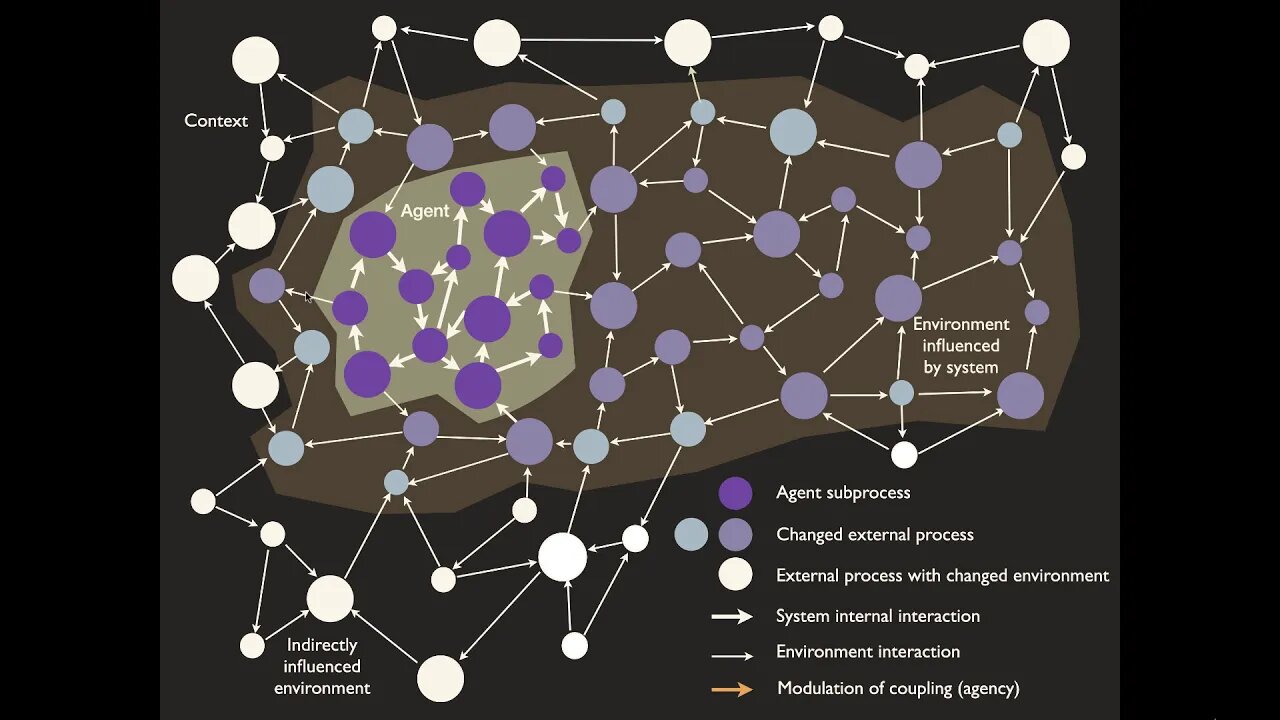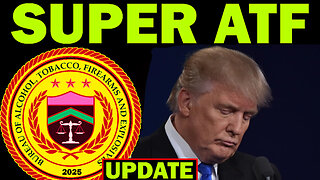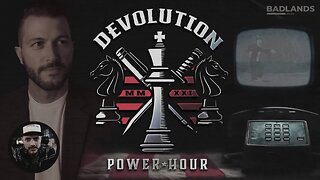Premium Only Content

Systems that predict the future
This video is about the basics of the living system – agent – concept. It starts with the role of ever better predictions to avoid death. It state that a 'system' has characteristic dynamics due to stronger internal than external interconnections. This leads to two conceptions of systems: open and closed. A living agent is a special form of closed system because it closes itself and in doing so it creates an internal environment that allows its own perpetuation.
Perpetuation can have two manifestations: survival or thriving. This corresponds to two forms of cognition. Cognition to solve (end) problems and cognition to perpetuate a good situation. The first (coping) corresponds to intelligence and the second (co-creation) corresponds to problem prevention. They both have completely different strategies to engage the world. This is exemplified by bureaucracy and friendships. It might even influence how are mind is organized.
Andringa, T. C., van den Bosch, K. A. M., & Vlaskamp, C. (2013). Learning autonomy in two or three steps: linking open-ended development, authority, and agency to motivation. Frontiers in Psychology, 4, 18. http://doi.org/10.3389/fpsyg.2013.00766
Andringa, T. C., van den Bosch, K. A., & Wijermans, N. (2015). Cognition from life: the two modes of cognition that underlie moral behavior. Frontiers in Psychology, 6(362), 1–18. http://doi.org/10.3389/fpsyg.2015.00362
Barandiaran, X., Di Paolo, E. A., & Rohde, M. (2009). Defining Agency: Individuality, Normativity, Asymmetry, and Spatio-temporality in Action. Adaptive Behavior, 17(5), 367–386.McGilchrist, I. (2010). The master and his emissary : the divided brain and the making of the Western world. New Haven, Conn.: Yale University Press.
McGilchrist, I. (2010). The master and his emissary : the divided brain and the making of the Western world. New Haven, Conn.: Yale University Press.
Russell, B. (1938). Power (1st ed.). London: George Allen & Unwin.
Ryan, R. M., & Deci, E. L. (2000). Intrinsic and Extrinsic Motivations: Classic Definitions and New Directions. Contemporary Educational Psychology, 25(1), 54–67. http://doi.org/10.1006/ceps.1999.1020
Walker, B., L. Gunderson, A. Kinzig, C. Folke, S. Carpenter, and L. Schultz. 2006. A handful of heuristics and some propositions for understanding resilience in social-ecological systems. Ecology and Society 11(1):13.
-
 41:56
41:56
CatfishedOnline
2 days agoKinky Man Sends 401k to Romance Scammer from Ghana!
2.13K2 -
 1:53:55
1:53:55
Nick Shirley
16 hours ago $0.44 earnedIRL Confronting Anti-Trump & Anti-Elon Protesters
3.03K20 -
 16:18
16:18
Tactical Advisor
23 hours agoRetiring My Patrol Rifle | Old vs New
2.36K -
 22:29
22:29
JasminLaine
17 hours agoAwkward Silence After Poilievre FACT CHECKS Reporter—Carney’s Face SAYS IT ALL
3.35K14 -
 9:48
9:48
VSOGunChannel
17 hours ago $0.23 earned25% of ATF Getting Fired? SUPER ATF on Hold?
2.53K5 -
 11:09
11:09
ariellescarcella
20 hours ago"All 4 Of My Kids Are Trans" : NOOOOOO
3.39K12 -
 12:35
12:35
GoldenWebb
22 hours agoMP5/K Super Safety
1.89K1 -
 2:45:42
2:45:42
Badlands Media
20 hours agoDevolution Power Hour Ep. 343: System Shock
154K137 -
 LIVE
LIVE
Sgt Wilky Plays
2 hours agoSunday Morning Coffee and games
101 watching -
 1:24:00
1:24:00
Man in America
23 hours agoMarket Crash, Tariffs, USD Collapse: Trump's Plan to END the Old World Order? w/ John Perez
137K155